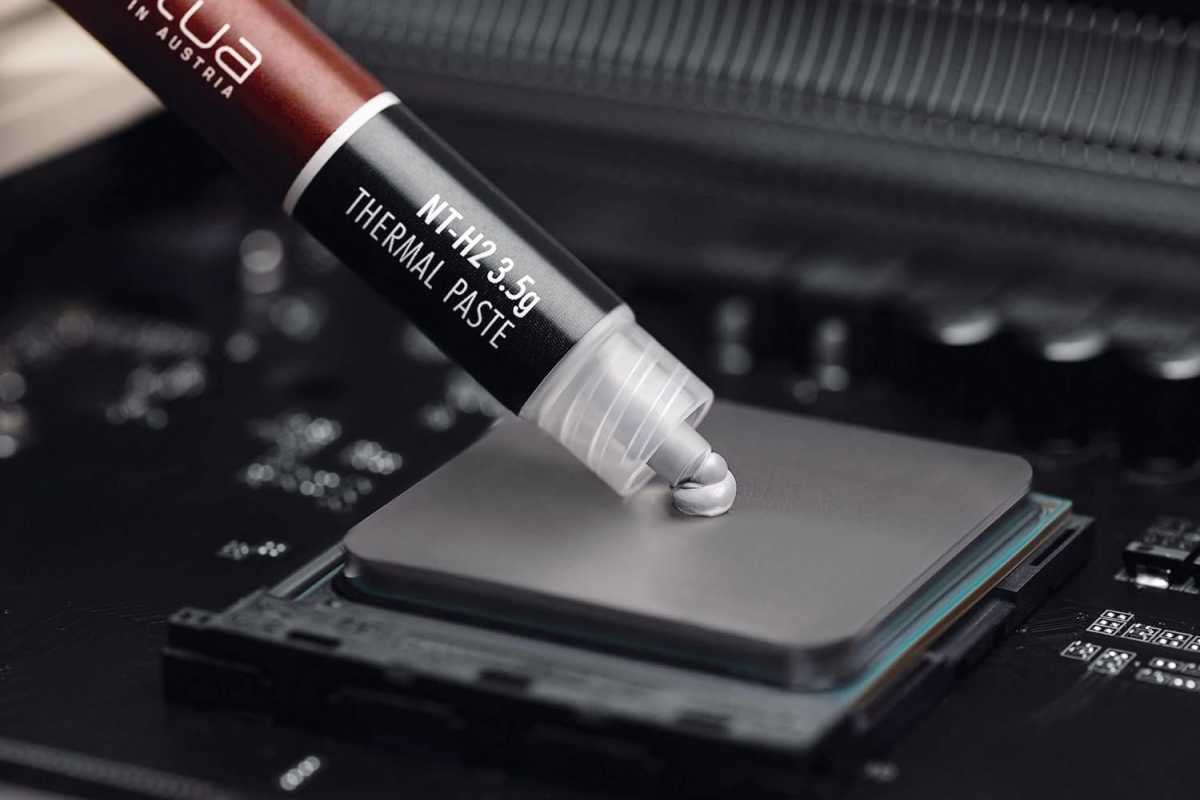When assembling a desktop PC, applying thermal paste to the CPU is a crucial step that often causes confusion. Thermal paste, also known as thermal grease, thermal interface material, or thermal gel, ensures efficient heat transfer from the processor to the cooler. The correct application of the paste is crucial, as either too much or too little can affect cooling performance.
When replacing thermal paste, you should completely remove the old paste with an agent such as isopropyl alcohol before applying the new paste.
Noctua
The thermal compound is applied to the top of the CPU, not to the bottom or into the CPU socket of the motherboard. The top of the CPU is the smooth metal plate on which the manufacturer and model information is printed. The paste must not be applied to the hundreds of squares or pins on the bottom of the CPU or directly onto the CPU socket of the motherboard.
Be careful with the amount of thermal paste. A pea-sized amount is sufficient and should be placed directly in the center of the CPU. You do not need more paste to ensure effective heat transfer. When attaching the cooler, the paste is distributed evenly under pressure. You therefore do not need to spread it beforehand. Too much paste can spill over the chip and penetrate the CPU socket, possibly causing thermal problems and potential damage.

Scholars argue about the ideal amount of thermal paste (here from Noctua). In general, however, the motto is: less is better than too much.
Noctua
It is also important to note that many CPU coolers are already equipped with thermal paste. In this case, no additional application of the paste is necessary. However, if you are using a new cooler or replacing an old CPU, you must remove the old paste and apply fresh paste. It is best to use isopropyl alcohol for cleaning.
Once the paste has been applied, simply place the cooler on top and attach it to the motherboard using the mounting hardware supplied. The correct use of thermal paste is an important step when assembling a PC.
This article was translated from German to English and originally appeared on pcwelt.de.



